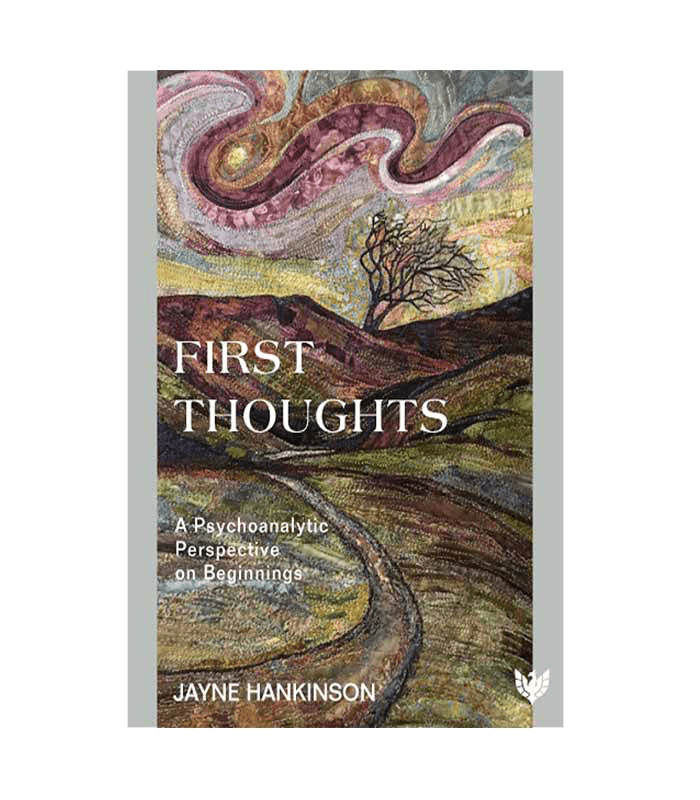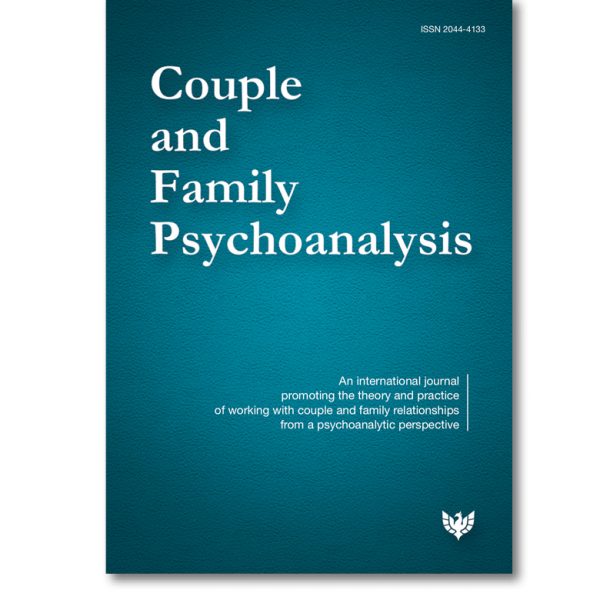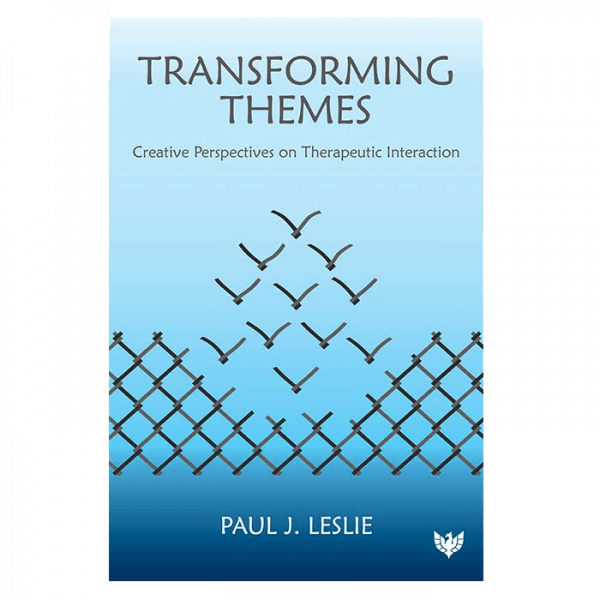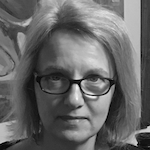‘…any Psychoanalyst must find his own way and come upon well-known and well-established theories through experiences of his own realisations.’ So says W. R. Bion in his Commentary in Second Thoughts. In First Thoughts, Jayne Hankinson does just this. She presents a personal account of her own ‘realisations’ and discoveries during an attempt to give thought to ‘beginnings’. She explores the meaning and relevance of creation myths, leading to a deep realisation of how they unconsciously represent and shape much of our lives, even today. This exploration meanders through the Garden of Eden, leaving with a realisation that there is an ‘Adam’ and ‘Eve’ aspect in dynamic tension within each of our minds.
This serpentine journey becomes a ‘hermeneutic loop’ in which dissatisfaction with parts of psychoanalytic theory leads to an engagement in the phenomena of beginnings and a consequent reappraisal and reinterpretation, via a closer look at Sigmund Freud, Melanie Klein, Donald Winnicott, and Wilfred Bion to formulate an understanding of what their ‘first thoughts’ may be. The book ends with the author’s own creation myth reshaped and a deeper awareness of how important ‘beginnings’ are.






Chris Mawson, Training and Supervising Analyst of the British Psychoanalytical Society –
I get to review many manuscripts and book proposals and hardly ever come across work with the degree of freshness and relevance shown by Jayne Hankinson’s thinking. I have gradually become convinced that the ideas constitute original thinking and that they will be found clinically relevant by a wide variety of readers.
Armand D’Angour, Professor of Classics, Jesus College Oxford –
In this enjoyable book, Jayne Hankinson presents a rich blend of personal experience and reminiscence with an exploration of historical writings, creation myths, and psychoanalytic ideas, offering a range of interesting insights into the notion of beginnings and how they shape individuals’ lives and thinking.
Lesley Caldwell, Psychoanalysis Unit, University College London –
In finding her own way of being a psychoanalyst, Jayne Hankinson has used her own unease with the foundational texts as the thread for a search through a wider literature encompassing myths, science, literature, and approaches to sexuality in her determination to find her own way. This is a brave, honest record of that search.
Simon du Plock, Professor of Psychology, Metanoia Institute –
In this ambitious and wide-ranging book, Jayne Hankinson has undertaken a remarkable journey into the phenomenon of “beginnings”. Any reader wary, or indeed weary, of hermeneutics will discover here a lucid and highly accessible description of this method of enquiry. The result is an authoritative but also deeply personal text that will speak to all who are interested in personal or professional identity, both within the psychotherapeutic community and beyond. Along the way, she explores the purpose and evolution of creation myths, wherever they may be found. She examines their role in organised religion, where she makes a convincing argument that they frequently function to justify a particular present, rather than being “structures which represent a search for the truth”.
However, the book is not just or even primarily about beginnings as found in religious thought. Rather, she goes on to apply these insights to the foundations or, as she terms them, the “first thoughts” of psychoanalysis, and, in particular, the British school of psychoanalysis, where she identifies a parallel process – that of restriction rather than freedom of thought. Delving more deeply still, she argues that creation myths can be understood as structures that contain, and even solve, our existential questions, and offers the profound observation that, in the absence of such structures, “being” is impossible. Having identified the problem, she goes on to present her own creation myth – a structure which enables rather than impedes creativity and growth.
This is a work which cuts to the heart of beginnings, and says something important about how the way we understand beginning shapes us psychologically and existentially. In doing so, it touches us all.